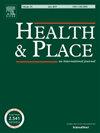卫生韧性项目的性别重要性-绩效视角
IF 4.1
2区 医学
Q1 PUBLIC, ENVIRONMENTAL & OCCUPATIONAL HEALTH
引用次数: 0
摘要
本研究以印度尼西亚雅加达沿海地区Kecamatan Cilincing为研究对象,从性别角度考察了环境卫生复原力,即环境卫生系统适应、运行和从环境、社会和基础设施挑战中恢复的能力。该研究利用重要性绩效分析(IPA)和逻辑回归模型,评估了不同性别群体在面临洪水、基础设施限制和社会经济差距等挑战时,如何看待卫生项目在确保设施安全、可靠和可及性方面的重要性和有效性。该研究侧重于四个关键的环境卫生指标:应对能力(管理日常环境卫生需求的能力)、学习能力(获得环境卫生相关教育和培训的机会)、规划能力(参与环境卫生相关决策)和兴趣水平(参与环境卫生规划和倡议)。调查结果揭示了显著的性别差异,尽管认识到卫生的重要性,但女性对卫生表现的评价始终低于男性。Logistic回归结果进一步表明,妇女、居住在永久性住房中的个人、老年人、正式工人和高收入居民更有可能参与环境卫生韧性项目。本研究强调需要制定促进性别平等的城市卫生政策,解决妇女和边缘化群体面临的具体挑战,包括安全、可及性和决策包容性。通过提供对性别卫生经验的见解,该研究为政策制定者、城市规划者和社区组织在快速城市化地区设计更具包容性和适应性的卫生干预措施提供了实用建议。本文章由计算机程序翻译,如有差异,请以英文原文为准。
Gendered importance-performance perspective on sanitation resilience programs
This study examines gendered perspectives on sanitation resilience, defined as the capacity of sanitation systems to adapt, function, and recover from environmental, social, and infrastructural challenges, in Kecamatan Cilincing, a coastal district in Jakarta, Indonesia. Using Importance-Performance Analysis (IPA) and logistic regression models, the research evaluates how different gender groups perceive the importance and effectiveness of sanitation programs in ensuring safe, reliable, and accessible facilities despite challenges such as flooding, infrastructure limitations, and socio-economic disparities. The study focuses on four key sanitation indicators: ability to cope (capacity to manage daily sanitation demands), ability to learn (access to sanitation-related education and training), ability to plan (participation in sanitation-related decision-making), and level of interest (engagement in sanitation programs and initiatives). The findings reveal notable gender disparities, with women consistently rating sanitation performance lower than men, despite recognizing its importance. Logistic regression results further indicate that women, individuals in permanent housing, older adults, formal workers, and higher-income residents are more likely to engage in sanitation resilience programs.This study highlights the need for gender-responsive urban sanitation policies that address specific challenges faced by women and marginalized groups, including safety, accessibility, and decision-making inclusion. By offering insights into gendered sanitation experiences, the research provides practical recommendations for policymakers, urban planners, and community organizations to design more inclusive and adaptive sanitation interventions in rapidly urbanizing areas.
求助全文
通过发布文献求助,成功后即可免费获取论文全文。
去求助
来源期刊

Health & Place
PUBLIC, ENVIRONMENTAL & OCCUPATIONAL HEALTH-
CiteScore
7.70
自引率
6.20%
发文量
176
审稿时长
29 days
期刊介绍:
he journal is an interdisciplinary journal dedicated to the study of all aspects of health and health care in which place or location matters.
 求助内容:
求助内容: 应助结果提醒方式:
应助结果提醒方式:


